Education: Teachers
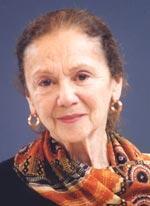
Irina Jacobson
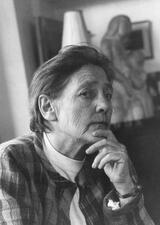
Marie Jahoda
Marie Jahoda was a major figure in social psychology, known for her work on the effects of unemployment on emotional well-being, as well as the social impact of McCarthy-era blacklisting. Jahoda received an award for distinguished contributions to the public interest from the American Psychological Association in 1979.
Ira Jan
Ira Jan, a painter and writer, was the first Hebrew artist in pre-State Palestine. Born in Kishinev, Jan graduated from the Moscow Art Academy and traveled Europe before immigrating to Palestine in 1908. Known for her love affair with Chaim Nachman Bialik, she immigrated to Jerusalem in 1908, engaging in painting and teaching and publishing her stories in a number of periodicals in Palestine.
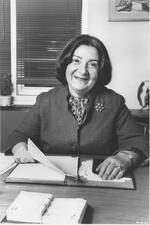
Tziporah H. Jochsberger
Having escaped the Holocaust on the strength of her musical talents, Tziporah H. Jochsberger went on to use music to instill Jewish pride in her students. In the 1950s, she began teaching and studying music in New York. In addition to her teaching and administrative roles, Jochsberger found time for an active career as a composer.
Lydia Joel
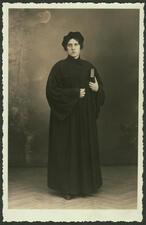
Regina Jonas
Regina Jonas longed to become a rabbi for most of her life, and despite significant obstacles, was ordained in 1935. As the first ordained female rabbi, she worked in Berlin until her deportation to Theresienstadt, where she continued to preach, teach, and inspire her fellow inmates until her final deportation to Auschwitz.
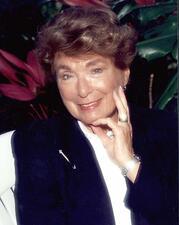
Geri M. Joseph
Geri M. Joseph, a pioneer in the acceptance of women in journalism and politics, was a prize-winning newspaper reporter, an American Ambassador to the Netherlands during the Carter administration, and the first woman to be elected to several business boards in Minnesota.
Norma Baumel Joseph
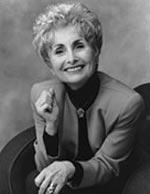
Esther Jungreis
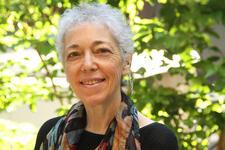
Hagar Kadima
Composer and visual artist Hagar Kadima was the first Israeli woman composer to earn a PhD in composition. She was also the founder and first chair of the Israeli Women Composers Forum.
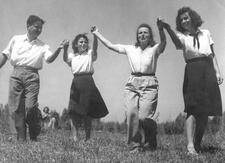
Gurit Kadman
Dorothy C. Kahn
During the Great Depression, Dorothy C. Kahn helped pioneer social work as a service provided by the government to all who needed it. Kahn developed, implemented, and advocated for social welfare programs and policies whose underlying principles upheld her deepest beliefs about what social welfare could mean in a democracy.
Margarete Kahn
German mathematician Margarete Kahn worked with fellow Jewish woman Klara Löbenstein and their essential contribution to a famed problem was cited in the publications of several others. Despite earning her doctorate and having a significant impact in her field, Kahn was unable to earn a post-doctoral degree due to discrimination against women, and she worked as a teacher until she was deported by the Nazis.
Regina Kaplan
Regina “Kappy” Kaplan was nurse, teacher, hospital administrator, and health care innovator. Most notably, Kaplan helped break down gender barriers in medicine by creating the first nursing school in the South that admitted male students.
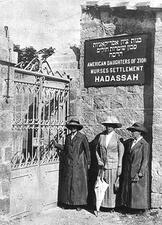
Rose Kaplan
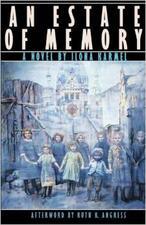
Ilona Karmel
Ilona Karmel transformed details of her experiences as a Polish-Jewish prisoner in Nazi work camps and as a patient undergoing a prolonged convalescence into two compelling and memorable novels. Karmel was a distinguished writer, winning a fiction contest from Mademoiselle and teaching awards from the Massachusetts Institute of Technology.

Ada Karmi-Melamede
Ada Karmi-Melamede (b. 1936) is a prominent Israeli architect. Her work includes a variety of public and private projects, among them the Supreme Court Building in Jerusalem and The Open University campus in Ra’anana. In 2007, she received the Israel Prize in architecture, the second woman to have ever received this prize.
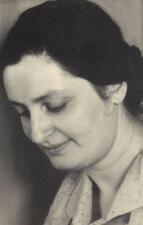
Hannah Karminski
During the mid-1920s and the 1930s in Germany, Hannah Karminski served as secretary of the League of Jewish Women and, from 1924 to 1938, as editor of its newsletter. After the forced liquidation of the League in 1938, Karminski remained in Germany and continued her work in the Reich Association of Jews in Germany, assisting with the kindertransports and welfare. She was deported to Auschwitz and murdered in 1942.
Fay Berger Karpf
Fay Berger Karpf made major contributions to social science with her analysis of the history of social psychology and specifically with her support of the psychoanalyst Otto Rank. She taught for many years and wrote several books about the profound influence Rankian theories had on American psychoanalysis.
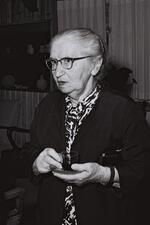
Rahel Katznelson
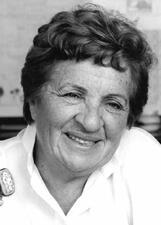
Shulamith Katznelson
Shulamith Katznelson helped make Israel a home for a wider range of people as both a pioneer of Hebrew-immersion programs and an advocate for Israeli-Palestinian dialogue.
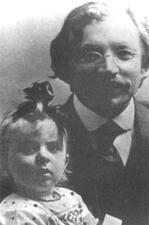
Bel Kaufman
Bel Kaufman was the author of Up the Down Staircase, a novel that gently parodied the public school system in New York City. Published in 1964, the book went on to sell six million copies, spent 64 weeks on the best-seller list, and inspired a film adaptation in 1967 and a popular school play. She was also the granddaughter of Yiddish writer Sholem Aleichem, whose stories formed the musical Fiddler on the Roof.

Joyce Jacobson Kaufman
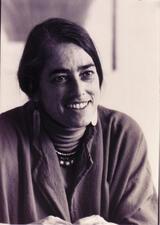
Evelyn Fox Keller
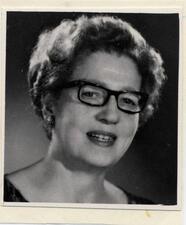
Lena Kenin
Lena Nemerovsky Kenin made major contributions to both gynecology and psychology with her successful medical practice and her groundbreaking work on postpartum depression.


